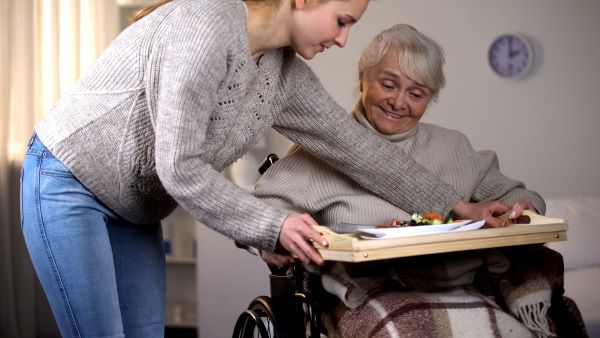The Future of Long-Term Care In 2022
Taking a look at your life and health care planning at the start of each new year is more critical than ever. As Americans continue to respond to COVID-19's many iterations, we identify what is most important in our lives to preserve our health and financial future. For many, the mere
Medicaid’s Shift from Nursing Facility to Home Care
According to Forbes.com, about half of all long-term care insurance claims are from policyholders living with dementia. The federally run program Medicaid is the primary financing mechanism of LTC where most of the monies are spent on institutional care settings that are ill-equipped to handle an increasingly large and longer
It Is Critical to Have a Health Care Power of Attorney
For serious illnesses like Alzheimer’s, it is essential to have a strong power-of-attorney to bring peace of mind. Additionally, it is important to know that a good “basic” advance-directive document needs considerable supplementation when it comes to a dreadful illness like ALS – Amyotrophic Lateral Sclerosis, or Lou Gehrig’s disease. Ordinarily,
Second Marriages and Medicaid
A new spouse’s possible future illness and how much it might cost is most likely the last thing you think about when you say “I do” for a second or third time. But that could happen. Current costs for long-term care facilities can run between $70,000 – $150,000 annually. Studies
Continuing Care Retirement Communities
Gaining in popularity across the United States, are continuing care retirement communities (CCRC), sometimes referred to as life plan communities. The goal is to provide a long-term care option for older residents. These residents prefer to live in the same community, though in different phase locations, during their aging process.
Alzheimer’s Prevention Gains Hope with New Drugs Therapy
The Lewis Katz School of Medicine at Temple University found that pharmacological "chaperone therapy" can prevent Alzheimer’s disease (AD) in mice according to recent research. Alzheimer’s is a chronic neurodegenerative disease that currently has no cure. Abnormal clumps (amyloid-beta plaques) and tangled fiber bundles (neurofibrillary or tau tangles) create brain
Isolation During COVID-19 May Increase the Risk of Elder Abuse
As some of the most vulnerable Americans to the COVID-19 pandemic, older adults are staying at home to lower their risk of infection as the coronavirus spreads throughout communities. The American Bar Association (ABA) reports that an unfortunate outgrowth from this isolation is an increase in risk factors for elder







